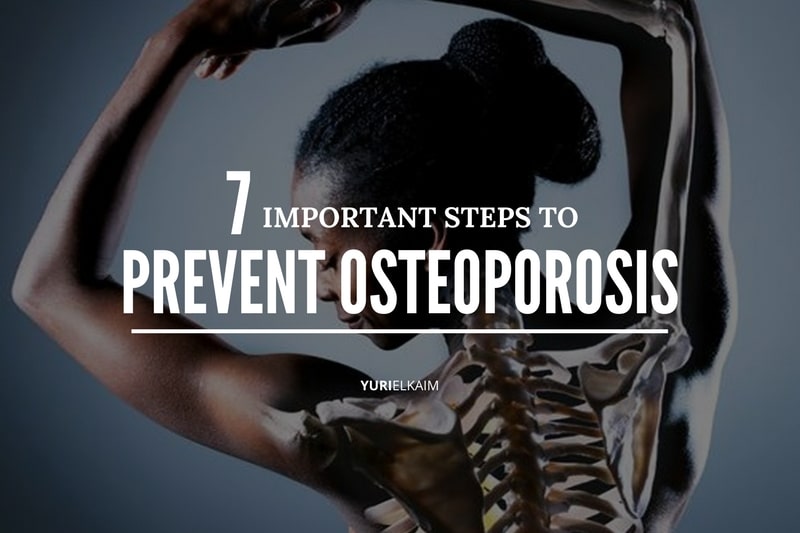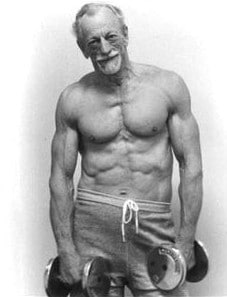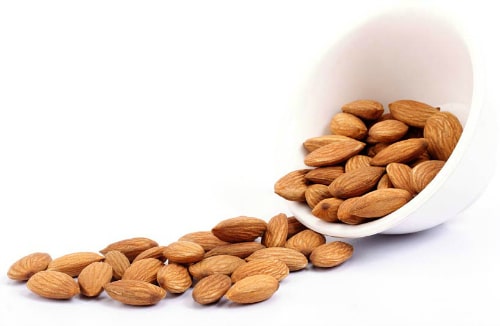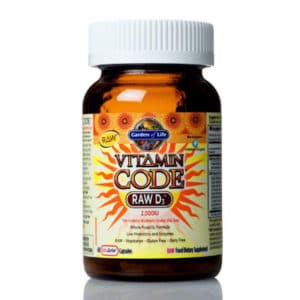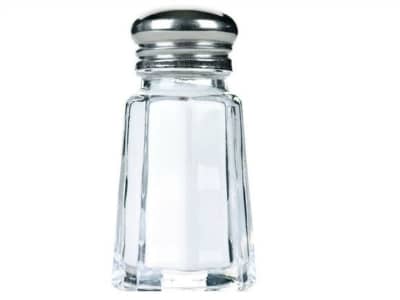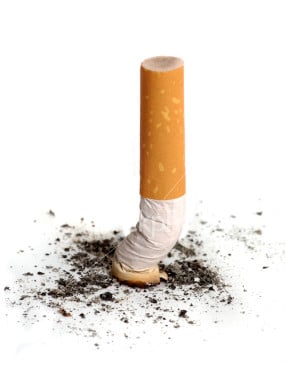In this article
There’s a reason osteoporosis is called a “silent disease.”
Many people who have osteoporosis don’t know it – until their bones become so fragile that they start to break.
That’s a pretty scary scenario, isn’t it? After all, your bones hold you up and provide structure and support for your entire body.
To understand what can cause osteoporosis – and what you can do to prevent it – it’s helpful to know a little bit more about your bones.
Boning Up on Bone Health
Your bones are made of a type of protein known as collagen, which forms their main structure. This is why some people take collagen supplements or drink bone broth, which can help maintain bone and joint health (1).
Meanwhile, calcium phosphate is found inside your bones, and it helps keep them strong and durable. In fact, 99 percent of the calcium in our body is found in your bones and teeth (2).
Osteoporosis occurs when your bones start to deteriorate and lose the density provided by calcium phosphate.
This can lead to severe bone loss, weakening your bones to the point where they can snap or break with even the slightest cough or a sneeze.
Older women are at the greatest risk of developing osteoporosis because women have thinner bones to start with. Compounding that is the fact women can lose bone tissue quickly in the first few years after menopause.
Still, anyone can be affected by this disease.
Some of the most common contributing causes include:
- Hormone imbalances
- Family history
- Thinness
- Amenorrhea (absence of menstrual periods)
- Lack of vitamin D
- Lack of calcium
- Inactivity
- Medications
- Smoking
- Excessive alcohol intake
- Thyroid conditions
Many of these causes – like smoking, amenorrhea, and thinness – directly affect estrogen levels. Disruptions in hormone levels can reduce the amount of calcium that your bones are able to absorb, leading to decreased bone density.
But there are things you can do to help prevent osteoporosis.
7 Key Steps to Prevent Osteoporosis
1. Resistance Training
One of the best things you can do for your bone health (and overall health) is do a few resistance training workouts each week.
Resistance training is basically any type of exercise where you’re working against an external force, causing your muscles to contract. This can mean working out with dumbbells, resistance bands, or weight machines.
Recommended Reading:
- The Best Compound Dumbbell Exercises for Getting Lean
- The Resistance Band Workout Routine That Tones You Up
- Anatomy of a Great Fat Loss Workout (5 Must-Have Parts)
How does resistance training prevent osteoporosis?
When placed under stress, like the stress that comes from resistance training, bones adapt by increasing their density and, as a result, build up strength.
Resistance training can also help build new bone tissue. It also improves balance and coordination, preventing falls that can lead to bone fractures.
Studies have confirmed the relationship between resistance training and bone mineral density – especially high-intensity resistance training (3).
To make the most of your workout, I recommend using heavier weights and doing fewer repetitions with shorter breaks. This can make your workout even more efficient, giving you (and your bones) the biggest bang for your buck.
For more ways to work out smarter and give your routine a boost, check out my top 10 tips here.
2. Maintain a Nutritious Diet
Have you noticed how many “lose weight now” messages you receive on a regular basis?
Crazy crash diets and cleanses might help you lose weight but they aren’t doing any favors when it comes to your overall health.
And that’s especially true when it comes to osteoporosis.
One of the major risk factors for developing osteoporosis is being thin or having a small frame.
Does that mean that every thin person will suffer from osteoporosis someday? Of course not. But maintaining your figure through unhealthy means can significantly up your risk.
This is because a low body weight can cause disruptions in your hormone levels. Estrogen levels, in particular, can decline in women and cause amenorrhea, or the absence of a period (4).
Low estrogen levels translate to low bone density, which can contribute to the development of osteoporosis (5).
Instead of following a diet geared specifically towards weight loss, shift your attention to a diet aimed at good health instead. Focus on counting nutrients instead of calories and make sure your diet is balanced and varied enough to meet your needs.
3. Meet Your Calcium Needs
We all know that calcium is crucial to building strong bones, so it’s probably not much of a surprise that making sure you’re getting enough is essential to warding off osteoporosis.
Adults need 1,000 mg of calcium daily and for women over 50, that number jumps up to 1,200 mg per day.
While your mind might immediately jump to downing a cold glass of milk to fulfill your calcium needs, there are plenty of healthier dairy-free ways to get in enough calcium.
Canned fish with bones like sardines or salmon contain a hearty chunk to meet your daily requirement, as do leafy greens and almonds.
I recommend monitoring your intake using a food journal for a few days to see how much calcium you’re really getting through your diet. Then fill in the gaps by adding dairy-free calcium sources into your day, helping you meet your needs and keep your bones strong and dense.
4. Consider a Vitamin D Supplement
Unless you’re blessed enough to live in a tropical region where it’s sunny all year round, there’s a good chance you could be lacking in vitamin D.
Much like calcium, vitamin D is vital to maintaining the health of your bones and keeping them strong and sturdy as you get older.
Our main source of vitamin D is the sun. Our skin produces this “sunshine vitamin” as a result of sun exposure, helping promote the absorption of calcium and improving bone health.
Unfortunately, getting enough vitamin D can get a little tricky.
For those with fair skin, meeting your vitamin D needs can be accomplished with just 15 minutes of sun exposure per day. If you have darker skin, however, it can take much longer, as melanin often competes with the same substance that is responsible for the production of vitamin D in the skin.
If it’s the winter or if you have limited sun exposure, it can be next to impossible to get what you need.
And although vitamin D is present in the food supply, it takes a lot of effort to meet your needs entirely through what you eat.
That’s why I often recommend considering a vitamin D supplement (preferably from whole foods). Taking a supplement can help you meet your needs quickly and easily to help promote bone health and prevent problems like osteoporosis.
Opt for vitamin D3 vs vitamin D2 – this type is converted into its active form more easily in the body and can be a more effective option.
5. Cut Back on the Sodium
There are plenty of reasons that we should all monitor our sodium intake. From keeping blood pressure in check to preventing bloating and water retention, more is not always better in the case of sodium.
But did you know that sodium can also play a major role in the development of osteoporosis?
Excess sodium can leach calcium from the bones, which ends up being excreted through the urine. To put it simply, as sodium leaves the body, it brings calcium out along with it.
As you can imagine, this can basically undermine any of your efforts to increase your calcium intake, leading to weakened bones and osteoporosis (6).
Although you might think the salt shaker is the primary culprit behind high sodium intake, that’s not usually the case. In actuality, the majority of the sodium we get through our diet comes from processed foods and restaurant meals, which are loaded with extra calories, fat, and sodium in favor of flavor but not health.
To reduce the amount of sodium you’re eating, cut back on your intake of packaged and prepared foods and go for whole, fresh foods instead.
Try seasoning your foods with spices instead of salt and when buying canned legumes, look for varieties that are marked as “no added salt.”
6. Practice Yoga
On your days off from resistance training, yoga is a practice you might want to consider picking up.
Besides easing stress and increasing flexibility, yoga can increase balance to prevent the likelihood of fractures and injury.
Not only that, but there’s evidence suggesting that practicing yoga for even just 12 minutes per day can increase bone density and improve bone quality (7).
If you’re just getting started in the world of yoga, give my simple 5-minute morning yoga routine a shot. It’s quick and easy and doesn’t require any equipment, making it ideal for yogis of any skill level.
7. Follow a Healthy Lifestyle
Take a look at the list of osteoporosis risk factors and you might spot a few lifestyle-related factors on the list.
For one, smoking is associated with decreased bone density. Although it remains unclear if it’s related to the act of smoking itself or it’s due to other confounding factors like an increased likelihood of having a poor diet or drinking more alcohol, giving up smoking is one of the best things you can do for your health (8).
Although studies suggest that moderate alcohol intake could actually be beneficial for bone health, drinking too much can be detrimental. One trial showed that drinking 30 grams or more per day (about 3 standard drinks) is associated with a lower bone density (9).
The solution?
Follow a healthy lifestyle. Exercise regularly, eat a well-balanced diet, stop smoking if you do, and cut back on your alcohol intake to get the strongest bones possible.
Strengthen Your Bones for Life
Feeble bones and frequent fractures don’t have to be in your future. Take a few healthy steps to prevent osteoporosis today and you can totally side-step these problems, keeping your bones healthy and strong.
Keep an eye on your diet, get in some physical activity, and follow a healthy lifestyle – all of which go a long way toward keeping your bones strong.
Do You Know Your Health Score?
Is your body signaling you that something’s wrong? Is your body storing fat, making you feel tired, or losing energy?
Take the Health Quiz to uncover 20 different ways your body might be telling you it wants help!
Get started below!

